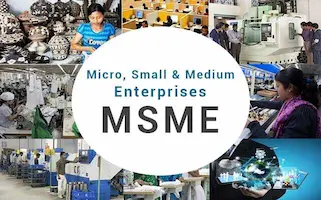
What are MSMEs?
Micro, small, and medium-sized enterprises (MSMEs) are businesses that are classified based on a relatively smaller amount of revenue, assets, or number of employees (below a certain set threshold). Each country has its own definition and size criteria for a business to be classified as an MSME, and the industry in which the company operates is also often taken into account.
For example, the European Union classifies a small-sized enterprise as a company with fewer than 50 employees, and a medium-sized enterprise as one with less than 250 employees. In addition to small and medium-sized enterprises, there are micro-enterprises, which employ up to 10 employees. In Canada, a medium-sized enterprise refers to businesses with fewer than 500 employees, a small-sized enterprise with fewer than 100 employees, and a micro-enterprise with fewer than 5 employees. In the US, the definitions are a bit more complex: the Small Business Administration (SBA) classifies small businesses according to its ownership structure, number of employees, earnings, and industry. For example, in manufacturing, an SME must have 500 or fewer employees. In contrast, businesses that mine copper ore and nickel ore can have up to 1,500 employees, and are still identified as an SME. Similarly, many countries around the world have their own definitions to categorize business as micro, small, and medium-sized.
Importance of MSMEs
MSMEs play a major role in both emerging and established economies throughout the world, and are important contributors to global economic development. Per the UN, globally, MSMEs account for 90% of businesses, 60-70% of employment, and 50% of GDP. MSMEs are generally entrepreneurial in nature, and help shape innovation, adding large value to the local and national economies by creating jobs, enhancing income, strengthening the purchasing power, lowering costs, adding business convenience, and above all, creating a sustainable livelihood for the communities of working poor, women, youth, and other groups in vulnerable situations. The World Bank estimates that about 600 million jobs will be needed by 2030 to absorb the growing global workforce. This makes MSME growth and development a high priority for all economies around the world. In emerging economies, MSMEs create 70% of formal jobs, and are very powerful and important contributors to economic development, innovation, and employment creation.
Challenges facing MSMEs
Despite their recognized importance, MSMEs face challenges, especially with access to finance and necessary capital, which is a key constraint or critical barrier to MSME growth. According to the World Bank, MSMEs’ sustainability is often threatened by the lack of access to risk-management tools, such as savings, insurance, equity, and credit. Access to financial services is very important for MSMEs growth, to help them thrive in this increasingly competitive and changing world, and thereby positively impact the community. To add to this, the COVID-19 crisis has especially hit MSMEs hard, as many were forced to close for a period of time and were unable to generate revenue.
There is a large MSME finance gap globally (the difference between current supply and potential demand which can be addressed by financial institutions). The International Finance Corporation (IFC) estimates that 65 million firms, or 40% of formal MSMEs in developing countries, have an unmet financing need of $5.2 trillion every year, which is equivalent to 1.4 times the current level of the global MSME lending. Additionally, although women-owned businesses comprise 23% of MSMEs, they account for 32% of the MSME finance gap. According to the World Bank, MSMEs are less likely to obtain bank loans than larger companies, but instead rely on internal funds, or cash from family and friends, to launch and run their businesses.
Initiatives to increase financial inclusion for MSMEs
Many governments in both developed and developing economies regularly offer incentives, such as favorable tax treatment and better access to loans, to help keep MSMEs in business. However, the need for access to finance has still remained quite high, irrespective of the local/governmental help. International organizations, such as the World Bank, are also working to improve conditions for MSMEs. The World Bank is working to improve MSMEs’ access to finance in several countries, and help them find innovative solutions to unlock sources of capital, by providing advisory and policy support and increasing the availability of lending services globally.
Initiatives such as these are a step forward in the right direction, but more is still needed. In order to create opportunities for MSMEs globally, and help them better impact their communities to advance economic development and decrease poverty, governments/the public sector, international/regional organizations, and the private sector have to work together to understand the nature and magnitude of the finance gap that exists for the MSMEs, and work to address many of the challenges impeding their growth.


 Raj Mehta – Financial Education Instructor
Raj Mehta – Financial Education Instructor